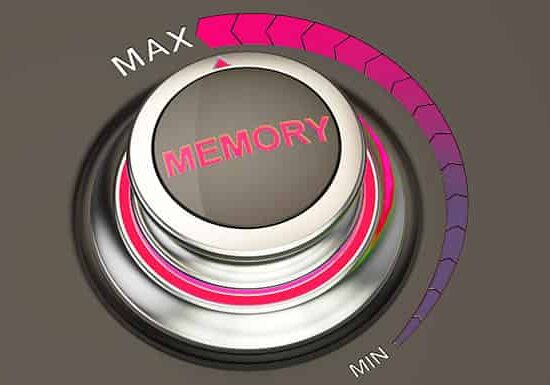Strategies to Improve Your Memory
Updated: June 19, 2024

As a student, studying for exams is a regular part of college life. While it may be difficult to remember all of the new information that you have learned, there are many techniques out there that can help you improve your memory. So before you take your next exam, try implementing one of the following memory strategies to help you study more effectively!
What is Memory Strategy?
A memory strategy is a technique that you can use in order to help improve remembering information that you have learned. There are many techniques out there that you can learn, both internal and external.
External vs Internal Memory Strategies
External memory strategies refer to everyday objects that we use in order to remind us to do things. These could be calendars, to-do lists, written reminders, or even putting things in places that we often check, such as the fridge.
Internal memory strategies are mental techniques that we use to train our brains to remember information that we have learned. Internal memory strategies are what you will need in order to better remember the material that you studied before taking a test.
Let’s take a look at some useful internal memory strategies the next time you have an important test coming up!
Memory Strategies
Photo by Craig Adderley from Pexels
1. Understand the Material
Before you even start memorizing your study material, you need to understand it. Do this by finding a connection between your study materials and something you have already experienced. The more you can relate the material to what you already know, the easier it is to learn and remember.
2. Have The Right Study Environment
Paying attention is incredibly important when studying. Without paying attention, you will not be able to process the concepts you are learning. Something that greatly affects your attention is the environment in which you are studying. Make sure you study in an environment that is free from distractions such as television, music, and loud talking.
This also means not being distracted by other people. If you have a roommate, you may want to ask them to give you some privacy. If you have children, ask your partner or a friend if they could take them out so that you can focus on your work.
3. Space Out Your Work
Make sure that you do not cram too much work into one study session. When scheduling your study slots, stretch out your work over numerous days.
Be sure to only focus on small quantities of material at a time. The fewer new concepts you need to learn in each study session, the easier it is to remember the information.
4. Repetition
As the saying goes, practice makes perfect!
In order to truly master a new concept or skill, you need to practice it over and over again. Doing so will help you store this material in your long-term memory. You can practice this material in a number of ways, including writing, saying, or drawing the information.
5. Organize Your Learning Material
Understanding a concept becomes easier when you understand where it fits in the bigger picture. This means grouping related concepts together. You can do so by showing the relationships between items using graphic methods such as Venn diagrams and mind maps. This strategy also helps you to understand each concept’s relevance.
6. Use Mnemonic Methods
Come up with a rhyme, joke, or song to remember some concepts. If the method you use is catchy, it will become much easier to remember the concept. It is also easier to remember concepts when they are associated with something you are familiar with.
7. Think in Pictures and Colors
Many people are visual learners. If you are, try to visualize the material that you are studying. You can do so by paying attention to the photographs and other graphics that appear in your textbook.
If there are no graphics in your textbook, you can make graphics of your own. Draw pictures and diagrams to accompany your notes, or use different colors to highlight important points and group related concepts together.
Using pictures and colors can make seemingly boring material more interesting and memorable.
8. Association
If the material is unfamiliar, think about how it relates to things that you already know. Try to establish a connection between the study material and people, places, situations, or feelings that you are already familiar with.
This gives the new material context, and make it easier to remember as you think about the things that you are already familiar with.
9. Acronyms
An acronym is a word that is made up of the first letters of a group of words.
If you have a list of terms that you need to remember, making an acronym is an effective study technique. By using an acronym, you will immediately be reminded of the first letter of each term, thereby making it easier to remember the entire list.
10. Talk About What You’ve Learned
Just like you have visual learners, there are also people who learn through talking. Speak to a friend or family member about the concepts you’ve learned. By having a debate or a two-way discussion with them, you will be able to speak about the topic on a deeper level and develop a better understanding of it.
There is also research that suggests that simply talking about the information aloud will help you memorize it, even if you do it alone.
11. Storytelling
Write a story focusing on the key points of what you’re learning. As you write the story, arrange what you’ve learned in a logical sequence so that you do not miss anything out. When you retell the story, each part of it will trigger your memory and remind you of what comes next.
12. Vary Your Study Routine
Studying in the same place at the same time during each study session can become tedious. In order to maintain your attention, you may want to add novelty to your study sessions. This could be done by changing the location where you study or studying at a different time of day. This will make it easier to recall information.
13. Get Enough Sleep
Research suggests that getting enough sleep is important for retaining information more effectively. It is, therefore, a good idea to take a nap after learning a new concept for the first time. Make sure that you also get enough sleep at night, as this can affect your energy levels for the next day.
14. Play Games
Playing games makes learning fun. You can use games to help you memorize facts, formulas, or even events. As you play the game, you will continue to revise the material again and again. You will also have fun socializing with friends while doing so!
15. Chunking
It is easier to memorize information by only learning a small chunk of it at a time. If you have to learn history, break up the course content into time periods. If you are learning a new language, then group words together into categories, such as household items or sports.
Even if there is no distinct pattern, break your study material up into smaller groups in order to make it easier to memorize.
16. Funny Sentences
If you find yourself needing to remember an unfamiliar word, use the letters that make up the word to form a silly sentence. By making a sentence that is easy to remember, you can, therefore, recall the letters of the difficult word that you needed to memorize. This technique will also help you to spell the word correctly.
17. Rote Rehearsal
This strategy involves repeating information in your head over and over again as you learn it. Often, this is done to remember obscure details such as phone numbers. This technique is typically used to store details in your short-term memory only.
18. Elaboration
This is whereby you try to remember a detail by assigning further meaningful information to it. A good example of this is where you need to remember a combination of numbers, and so you come up with ways to remember each digit. For example, one part of the number might be your year of birth, while another digit might represent how many children you have.
What Else Can You Do to Improve Memory Strategy?
Photo by Craig Adderley from Pexels
For starters, you can do light exercise. This gives you a much-needed break from studying and helps you to keep up your energy levels. One study found that 10 minutes of light exercise resulted in improved memory for details and increased brain activity in young adults.
Mindfulness meditation is also believed to have cognitive benefits. This technique helps to boost people’s attention and increases the possibility for people to falsely recognize new words as words that they had seen earlier. This technique consequently increases feelings of familiarity with words.
Making sketches of what you have learned can also help you to remember it. This will make even detailed information more familiar.
Finally, you may benefit from learning music or another language. Studies show that musicians and bilinguals often require less effort to perform working memory tasks.
Enhance Your Memory and Reduce Memory Problems
Before enhancing your memory, it is important to understand how your memory works. This requires you to identify your specific memory strengths and weaknesses.
A good teacher should present information to students in different formats. If you do not receive it in different formats, however, you could always turn the information into the format that you learn from best, whether that’s visual, audio, or kinesthetic.
Paraphrasing information can also help you. This means that instead of learning the information word for word, you get the gist of what the information is about. One effective way to do this is by summarizing information on Post-It notes.
If you struggle with your working memory, staging can be an effective way to complete assignments. This involves focusing on only one aspect of work at a time. For example, if you are writing an essay, you may want to first jot down ideas, then organize them, and finally, attend to spelling and grammatical errors.
Reviewing your work before sleep is actually a method that helps to better remember information. This is because any tasks that you do between studying and sleeping disrupt the consolidation of information in memory.
You can also do self-testing. This is a useful way to practice important concepts, and get you ready for the test environment.
There is another strategy called overlearning. This is where you learn the information over and over until you can repeat the information without any errors.
Finally, it may be helpful to develop a unique strategy for approaching each task. This is because you may have received different types of course materials that appear in different formats, so different memory strategies may apply.
By applying the above memory strategies to your study sessions, you will be on the right track to preparing for tests more effectively!



